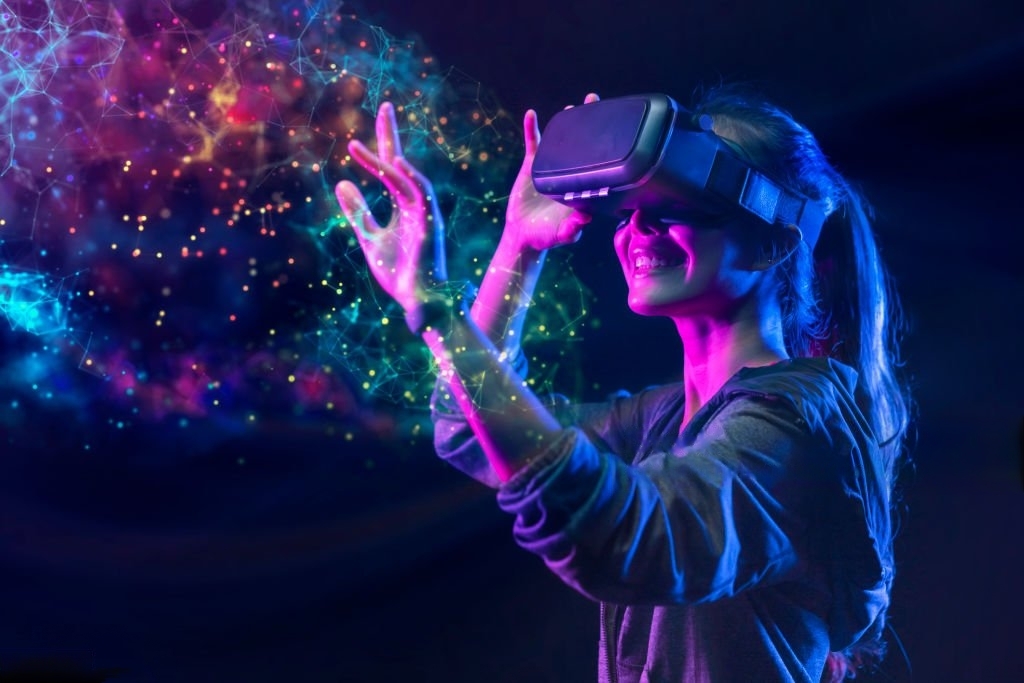
Future of Artificial Intelligence in 50 years:- Explore AI’s impact on healthcare, education, work, and creativity over the next 50 years. Discover ethical considerations and envision a harmonious coexistence between humanity and intelligent machines.
Introduction
In the grand tapestry of technological evolution, few threads are as transformative as Artificial Intelligence (AI). As we stand on the precipice of a new era, it’s tantalizing to imagine what AI could look like half a century from now. The trajectory of AI development suggests a future that intertwines seamlessly with our daily lives, reshaping industries, societies, and even the essence of what it means to be human.
1. AI in Healthcare:- Revolutionizing Wellness
Healthcare stands to gain immensely from AI. Picture a world where AI-driven diagnostics are not just accurate but can predict diseases before symptoms manifest. Personalized medicine, tailored to an individual’s genetic makeup and lifestyle, could revolutionize treatments, ensuring maximum efficacy with minimal side effects. Robotic surgeons, controlled with unparalleled precision by AI, could perform surgeries that were once deemed too complex, reducing recovery times and mortality rates. AI-powered mental health tools might offer therapy to anyone, anytime, eradicating the stigma around mental health.
development suggests a future that intertwines seamlessly with our daily lives, reshaping industries, societies, and even the essence of what it means to be human.
1. AI in Healthcare:- Revolutionizing Wellness
Healthcare stands to gain immensely from AI. Picture a world where AI-driven diagnostics are not just accurate but can predict diseases before symptoms manifest. Personalized medicine, tailored to an individual’s genetic makeup and lifestyle, could revolutionize treatments, ensuring maximum efficacy with minimal side effects. Robotic surgeons, controlled with unparalleled precision by AI, could perform surgeries that were once deemed too complex, reducing recovery times and mortality rates. AI-powered mental health tools might offer therapy to anyone, anytime, eradicating the stigma around mental health.
2. AI and Education:- A New Dawn of Learning
The classroom of the future will likely be unrecognizable. AI tutors could provide one-on-one guidance to students, identifying their unique learning styles and adapting lessons accordingly. VR classrooms, led by AI-driven educators, might take students on virtual tours of ancient civilizations or inside the human body, making education an immersive adventure. With automation handling administrative tasks, teachers could focus on mentoring, fostering creativity, and critical thinking skills, preparing students not just for jobs but for lifelong learning.
3. AI and Work:- Redefining the Workplace
AI’s role in the workplace will extend far beyond automation. Mundane tasks will be handled by AI, freeing human workers to engage in more meaningful, creative endeavors. New jobs will emerge, centered around AI development, ethics, and maintenance. Continuous learning and adaptability will be the norm, as AI and automation reshape industries at a pace never seen before. A deeper partnership between humans and machines will augment our productivity and innovation, leading to unforeseen advancements in every field imaginable.
4. AI and Creativity:- The Artistry of Algorithms
The intersection of AI and creativity will yield breathtaking results. AI-generated art, music, literature, and films will not just imitate but innovate, pushing the boundaries of human imagination. Artists and writers will collaborate with AI, creating symphonies and stories that blend human emotions with machine intelligence. This synergy could lead to entirely new art forms, challenging our perceptions of beauty and creativity. Museums and theaters will showcase AI-generated masterpieces, blurring the lines between the human and the artificial.
5. AI and Society:- Ethical Considerations
As AI becomes omnipresent, ethical considerations will be paramount. Striking the balance between technological advancement and societal well-being will be a continuous challenge. Ensuring AI systems are unbiased, transparent, and fair will be fundamental. AI ethics boards, comprised of experts from diverse fields, will oversee the development and deployment of AI technologies, safeguarding against misuse and discrimination. Privacy concerns will necessitate robust regulations, empowering individuals with control over their personal data while still benefiting from the conveniences AI offers.
6. AI and the Environment:- Guardians of the Planet
AI will play a pivotal role in combating climate change. Smart grids, managed by AI algorithms, will optimize energy distribution, reducing waste and reliance on fossil fuels. AI-driven simulations will help scientists develop sustainable practices, conserving biodiversity and natural resources.
Weather prediction models, enhanced by AI, will offer precise forecasts, enabling communities to prepare for natural disasters effectively. Innovations in green technology, accelerated by AI research, will make renewable energy sources more efficient and accessible, ushering in an era of eco-friendly progress.
7. AI and Space Exploration: The Final Frontier Enhanced
AI will be instrumental in humanity’s quest for the stars. Autonomous spacecraft, guided by intelligent algorithms, will explore distant galaxies, uncovering mysteries of the universe. AI-driven telescopes will survey the cosmos, detecting signals from extraterrestrial civilizations, if they exist. In the not-so-distant future, AI-powered terraforming technologies might enable the colonization of other planets, ensuring the survival of our species beyond Earth.
8. AI and Social Connectivity:- Nurturing Relationships
AI will redefine social interactions. Advanced chatbots, powered by AI, will provide companionship to the lonely and emotional support to those in need. Virtual reality, coupled with AI, will create social spaces where people from different corners of the world can meet, collaborate, and form genuine connections. AI will facilitate understanding between diverse cultures and languages, fostering global harmony and cooperation.
9. AI and Consciousness:- The Philosophical Frontier
One of the most intriguing questions AI raises is the nature of consciousness. While AI will certainly become incredibly sophisticated, whether it will truly possess self-awareness and consciousness akin to human beings is a topic of philosophical debate. Ethicists, scientists, and thinkers will grapple with
questions about AI rights, morality, and the boundaries between artificial and organic life forms, leading to profound existential discussions that redefine our understanding of sentience.
In this journey towards an AI-enriched future, collaboration between scientists, ethicists, policymakers, and citizens will be paramount. As we stand on the brink of this transformative era, it’s not just about the evolution of technology; it’s about how we, as a global society, choose to shape this evolution. The decisions we make today, the ethical frameworks we establish, and the inclusivity we promote will pave the way for a future where AI is not just a tool but a partner in our shared human adventure. As we embark on this odyssey, the destination is not merely technological supremacy; it’s a harmonious coexistence between humanity and its creations, forging a future where the potential of both is elevated, transcending the boundaries of what we once thought possible.




